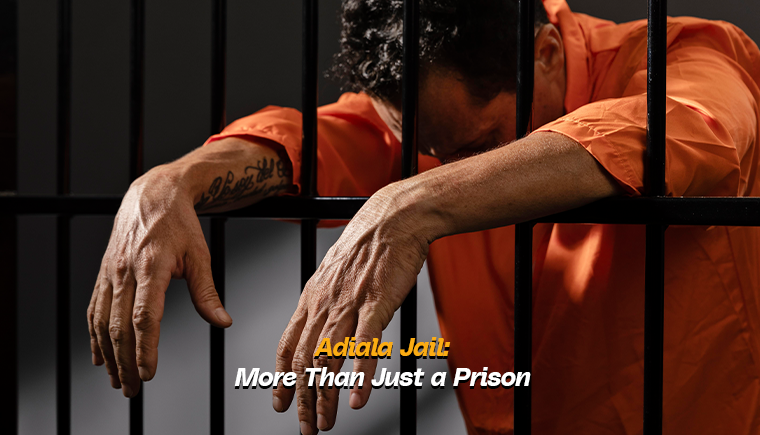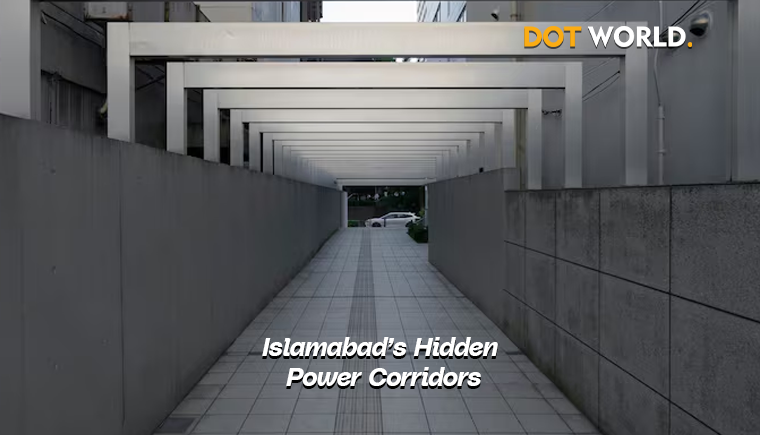When people hear the name Adiala Jail, they usually picture a high-security prison, locked gates, and grim cells. But this prison — located in Rawalpindi, Punjab — has become far more than just a detention center. Over the years, it has turned into a reflection of the Pakistan justice system, political history, and calls for long-overdue jail reforms.
Adiala Jail has held hardened criminals, high-profile politicians, journalists, and even ex-prime ministers. It’s a place where justice, power, and human rights collide — making it one of the most talked-about jails in the country.
📍 The Legacy of Adiala Jail
Built in 1986, Adiala Jail is officially called Central Jail Rawalpindi. It’s one of Pakistan’s largest prisons, with the capacity to hold over 2,000 inmates. However, like many facilities across the country, it is often overcrowded — holding up to double its intended population.
What makes Adiala Jail unique is not just its size or security protocols, but the people it has held over decades. From notorious criminals to respected leaders, it has become a backdrop to some of the most defining moments in the Pakistan justice system.
🧑⚖️ Justice Behind Bars: How Adiala Reflects the Pakistan Justice System
The conditions and controversies inside Adiala Jail say a lot about how the Pakistan justice system operates.
❗ 1. Delayed Justice
Many prisoners wait months — sometimes years — for their trials to begin. According to prison records and media reports, a majority of inmates are under-trial prisoners, not convicted criminals. This delay is a failure of the Pakistan justice system, where case backlogs and limited judges slow down the process of justice.
❗ 2. Class-Based Treatment
Wealth and influence often determine prison conditions. High-profile inmates in Adiala Jail are known to receive preferential treatment — including access to home-cooked food, medical facilities, and even Wi-Fi. Meanwhile, ordinary prisoners suffer without basic necessities.
This two-tiered system exposes the inequality embedded within the Pakistan justice system.
🧨 Adiala Jail and Political Prisoners
One of the most controversial aspects of Adiala Jail is its reputation for housing political prisoners.
Over the years, notable figures have been jailed here:
- Benazir Bhutto, twice imprisoned in Adiala in the 1980s
- Nawaz Sharif, detained after the Panama Papers verdict
- Imran Khan, whose political activism led to several legal entanglements
- Journalists and activists, like Cyril Almeida and others, have also faced short-term detainment
These incarcerations raise serious questions about how the Pakistan justice system is used — or misused — to target dissent and opposition. The line between legal accountability and political victimization often gets blurred.
👥 Life Inside Adiala Jail
While politicians may gain media attention, the average prisoner in Adiala Jail lives in drastically different conditions:
- Overcrowded cells, sometimes with 20+ people in a space meant for 6
- Limited access to healthcare, with reports of untreated illnesses and poor hygiene
- Minimal educational or vocational training, despite policies to offer rehabilitation
- Corruption and abuse, including bribes for better facilities or early release
These conditions are not just a matter of poor management — they are a sign that jail reforms are not just necessary, but urgent.
🚨 The Call for Jail Reforms in Pakistan
For years, human rights organizations, journalists, and legal experts have demanded jail reforms to modernize and humanize the prison system in Pakistan. Some key areas of reform include:
📌 1. Legal Reform for Under-Trial Prisoners
Speeding up trials and using bail more frequently can reduce overcrowding and uphold the right to a fair trial. Adiala Jail houses hundreds who are yet to be proven guilty — a clear failure of the Pakistan justice system.
📌 2. Improve Prison Infrastructure
From broken toilets to lack of ventilation, prisons like Adiala Jail suffer from decades of neglect. Modern facilities, especially for women and juvenile prisoners, are essential.
📌 3. Vocational & Educational Programs
Prisons should reform, not punish. Providing inmates with skills training, literacy programs, and mental health care can help reintegrate them into society.
📌 4. End VIP Treatment
All prisoners should be treated equally. Jail reforms must include policies to eliminate class-based discrimination behind bars.
🗳️ Politics and Prisons: The Vicious Cycle
Political prisoners often become rallying points for their parties, turning Adiala Jail into a political symbol. While this highlights the misuse of the Pakistan justice system, it also means actual prison reform gets ignored in favor of sensational headlines.
Here’s how the cycle plays out:
- A political figure is arrested
- Media covers their jail conditions in detail
- Human rights concerns are raised — but only for that one case
- Public attention fades once the political wave ends
- Systemic issues remain unaddressed
This selective outrage helps no one, especially not the ordinary prisoners who stay locked up, forgotten by the public.
🧾 Media & Public Perception
When high-profile figures are sent to Adiala Jail, the media zooms in. But very little is said about the everyday prisoners, their stories, or the structural issues that plague the facility.
This imbalance means that real jail reforms — ones that can help thousands — are rarely discussed or pushed in public policy debates.
🌍 How Do Other Countries Handle Jail Reform?
Comparing Adiala Jail to international standards reveals a lot. For example:
| Country | Jail Reform Focus | Result |
| Norway | Rehabilitation over punishment | Low reoffending rates |
| India | Modernization of old prisons + legal aid programs | Reduced trial delays |
| South Africa | Prisoner rights legislation | Better inmate health |
Pakistan can learn from these models by investing in long-term jail reforms, especially focusing on justice, dignity, and reintegration.
📣 Civil Society and Legal Aid Groups
Organizations like the Justice Project Pakistan and HRCP (Human Rights Commission of Pakistan) have been instrumental in documenting and fighting for better prison conditions. They have:
- Published reports on Adiala Jail and other facilities
- Advocated for political prisoners to receive fair treatment
- Highlighted abuses like torture and inhumane punishment
- Worked with lawmakers to suggest jail reforms
Still, progress remains painfully slow.
📍 The Way Forward: Reform or Repeat?
Fixing Adiala Jail is not just about infrastructure — it’s about shifting the mindset of the Pakistan justice system from punishment to rehabilitation.
Key steps include:
✅ Fast-track courts for under-trial prisoners
✅ Transparent inspections and media access to prisons
✅ Mandatory training for jail staff in human rights
✅ Technology-enabled monitoring to reduce abuse
✅ Rehabilitation-focused policies for political prisoners and ordinary inmates alike
🧾 Conclusion: More Than Just a Prison
Adiala Jail is more than a collection of walls and cells. It’s a mirror to Pakistan’s deepest institutional challenges. From political power plays to the neglected state of common prisoners, the jail embodies the triumphs and failures of the Pakistan justice system.
If Pakistan truly wants to move toward justice and equality, it must look beyond political headlines and focus on real jail reforms. Otherwise, Adiala Jail will continue to be a symbol — not of justice, but of everything that’s wrong with how we handle punishment, power, and human dignity.





